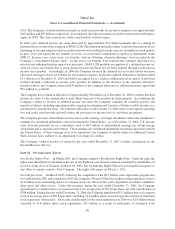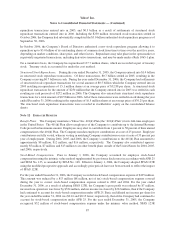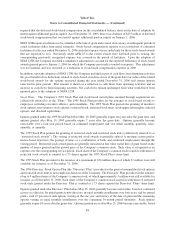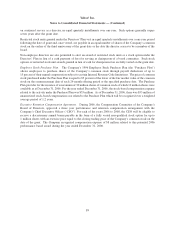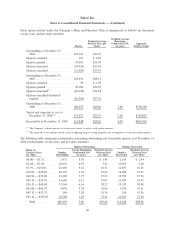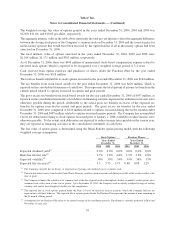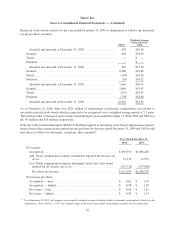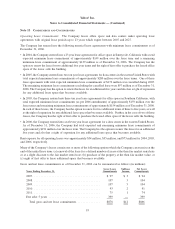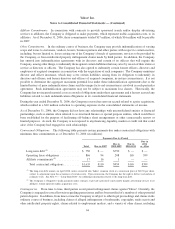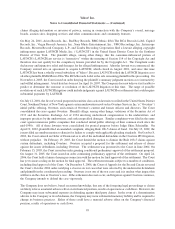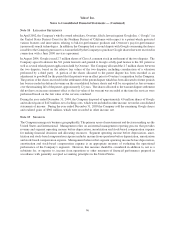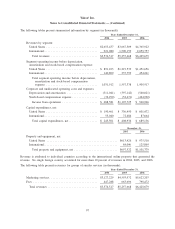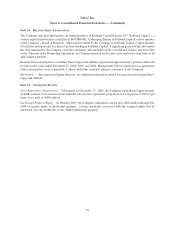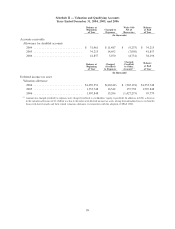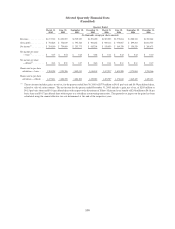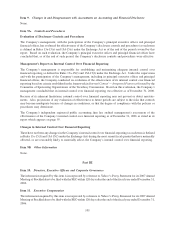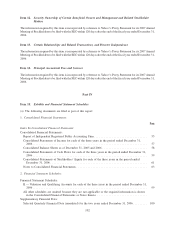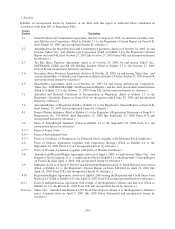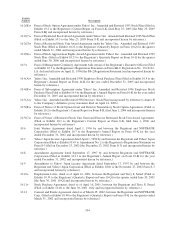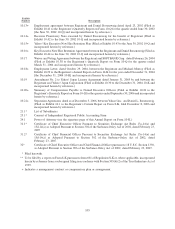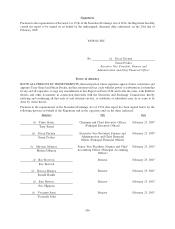Yahoo 2006 Annual Report Download - page 106
Download and view the complete annual report
Please find page 106 of the 2006 Yahoo annual report below. You can navigate through the pages in the report by either clicking on the pages listed below, or by using the keyword search tool below to find specific information within the annual report.Note 14 LITIGATION SETTLEMENT
In April 2002, the Company’s wholly owned subsidiary, Overture, filed a lawsuit against Google Inc. (“Google”) in
the United States District Court for the Northern District of California with respect to a patent which protected
various features and innovations relating to bid-for-performance products and Overture’s pay-for-performance
(sponsored) search technologies. In addition, the Company had a second dispute with Google concerning the shares
issuable to the Company pursuant to a warrant held by the Company to purchase Google shares that were received in
connection with a June 2000 services agreement.
In August 2004, Google issued 2.7 million shares of Class A common stock in settlement of the two disputes. The
Company agreed to dismiss the 361 patent lawsuits and granted to Google a fully-paid license to the 361 patent as
well as several related patent applications held by Overture. The Company allocated the 2.7 million shares between
the two disputes, based on the relative fair values of the two disputes, including consideration of a valuation
performed by a third party. A portion of the shares allocated to the patent dispute has been recorded as an
adjustment to goodwill for the period that the patents were in effect prior to Overture’s acquisition by the Company.
The portion of the shares received for the settlement of the patent dispute which has been allocated to future periods
has been recorded in deferred revenue on the consolidated balance sheets and will be recognized as fees revenues
over the remaining life of the patent, approximately 12 years. The shares allocated to the warrant dispute settlement
did not have an income statement effect as the fair value of the warrant was recorded at the time the services were
performed based on the fair value of the services rendered.
During the year ended December 31, 2004, the Company disposed of approximately 4.0 million shares of Google
and realized gains of $413 million, net of selling costs, which were included in other income, net on the consolidated
statements of income. During the year ended December 31, 2005 the Company sold the remaining Google shares
and realized gains of $961 million, which were recorded in other income, net.
Note 15 SEGMENTS
The Company manages its business geographically. The primary areas of measurement and decision-making are the
United States and International. Management relies on an internal management reporting process that provides
revenue and segment operating income before depreciation, amortization and stock-based compensation expense
for making financial decisions and allocating resources. Segment operating income before depreciation, amor-
tization and stock-based compensation expense includes income from operations before depreciation, amortization
and stock-based compensation expense. Management believes that segment operating income before depreciation,
amortization and stock-based compensation expense is an appropriate measure of evaluating the operational
performance of the Company’s segments. However, this measure should be considered in addition to, not as a
substitute for, or superior to, income from operations or other measures of financial performance prepared in
accordance with generally accepted accounting principles in the United States.
96
Yahoo! Inc.
Notes to Consolidated Financial Statements — (Continued)


